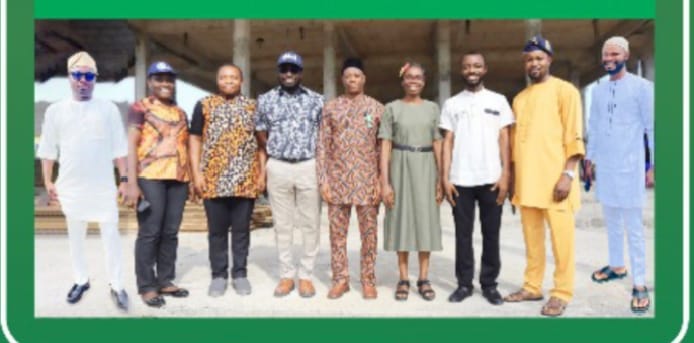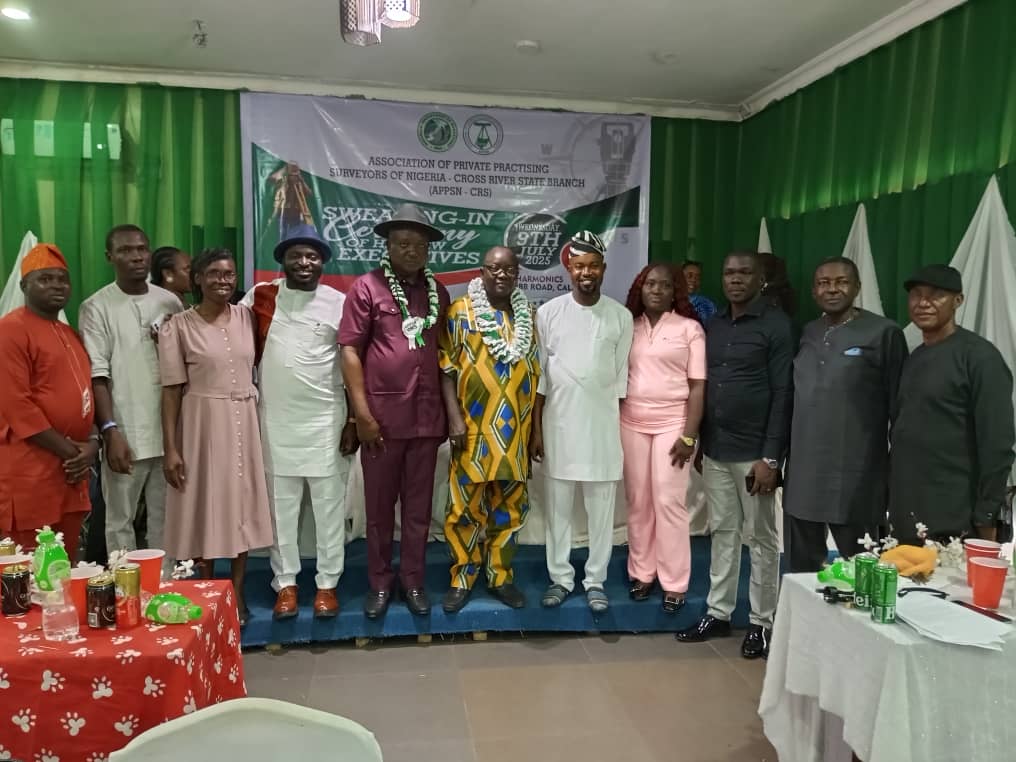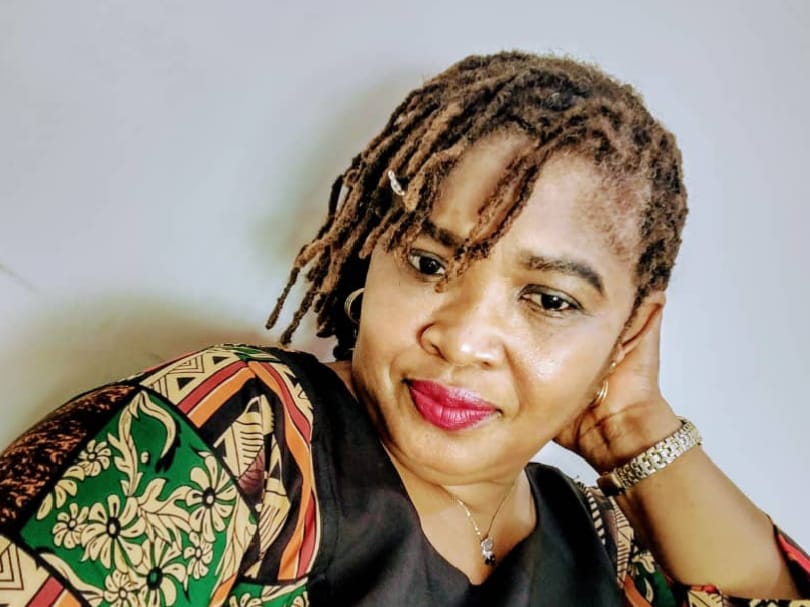The Peoples Democratic Party (PDP) National Secretary, Samuel Anyanwu, last week described the party’s Board of Trustees (BoT) recognition of Sunday Udeh-Okoye as the occupant of the position as an invitation to chaos.
The same week, the detained leader of the Indigenous People of Biafra (IPOB), Nnamdi Kanu, told political leaders in the South-East to stop begging the Federal Government for his release.
These and three other stories we tracked dominated public discourse in the country during the period.
1. PDP’s unending leadership crisis

On February 5, Anyanwu warned the PDP BoT that the recognition of his rival, Udeh-Okoye as the party’s national secretary was an invitation to chaos.
The embattled national secretary in a chat with journalists in Abuja said that BoT had no power to direct the PDP National Working Committee (NWC) to recognise Udeh-Okoye for the position.
The Adolphus Wabara-led BoT had during an emergency meeting the same day asked the PDP National Working Committee (NWC) to recognise and immediately swear in Udeh-Okoye as the party’s national secretary.
Anyanwu said: “You and I know that the matter is in Appeal Court and we shouldn’t even talk about it.
“The BoT members there, the tenure of some of them has expired. They can’t direct or advise the executive to do anything because their tenure has expired since October 2024.
“Besides, the matter is in the Appeal Court and there is a stay of execution order. So they (BoT) will be inviting chaos by making such statements.”
Why it matters
The crisis over the national secretary position in PDP is an indication of a party in total disarray with in-fighting now a regular occurrence in Nigeria’s former ruling party.
The PDP seems to be in a quandary on how to resolve the various issues that have risen in the aftermath of the 2022 presidential primaries and general elections the following year.
The days ahead will, therefore, prove if the BoT intervention will harmonize all dissenting voices and steady the ship in readiness for another shot at the presidency in 2027.
2. Kanu stops South-East leaders from begging FG for his release

The IPOB leader, Nnamdi Kanu, on February 9 told South-East political leaders to stop begging the Federal government to release him.
In a statement issued by his Special Counsel, Aloy Ejimakor, the IPOB leader said he did not commit any crime that warranted his arrest and detention in the first place.
Kanu added he did not send anybody to beg the government for his release.
The activist’s call followed appeals by prominent Igbo politicians and leaders, including the Anambra State Governor, Charles Soludo, Senator Orji Uzor Kalu, Deputy Speaker of the House of Representatives, Ben Kalu, and the Labour Party presidential candidate, Peter Obi, to President Bola Tinubu to release him.
The statement read: “During a visitation to Onyendu Mazi Nnamdi Kanu yesterday, he made it abundantly clear that while he is deeply appreciative of the efforts and the widespread calls being made by well-meaning individuals and groups to secure his release, he however instructed his legal team to issue the following clarification:
1. The matter of releasing Mazi Nnamdi Kanu is not an act of mercy, pardon, executive clemency, or even amnesty.
Instead, it should be an act of simply complying with the subsisting Federal High Court judgment that declared his detention as unconstitutional or even the extant international tribunal decisions that separately declared his detention as unlawful.”
Why it matters
The import of the South-East leaders’ move to free Kanu from detention is that it would reduce tension in a region that is in the spotlight for the wrong reasons.
Aside from Kanu’s release from prison, the government will do well to explore a political solution to IPOB’s agitation for a sovereign state of Biafra and other misgivings to give a new lease of life to the industrious people of the South-East.
3. INEC pushes for a special tribunal to tackle electoral offences

The Chairman of the Independent National Electoral Commission (INEC), Prof. Mahmood Yakubu, on February 7 renewed calls for the establishment of a dedicated electoral offences tribunal to tackle electoral offences in the country.
Yakubu, who spoke at a media consultative meeting in Abuja, cited the recent conviction of a Returning Officer in Akwa Ibom State in an election fraud case that took nearly six years to conclude as a glaring example of the inefficiencies in the system.
He said: “It took nearly six years to achieve a successful prosecution at the trial court. This delay undermines efforts to deter electoral fraud and hold offenders accountable.
“A major obstacle is that electoral offences are not time-bound. They are carried over from one general election to another, which affects the diligent prosecution of cases.”
Why it matters
The INEC boss may have spoken the minds of Nigerians on the establishment of an election tribunal to check violence, fraud, and other acts that undermine the country’s electoral process.
However, what the country requires at this time is a comprehensive reform of the electoral system to produce polls that are acceptable to Nigerians, who unfortunately are victims of bad leadership, the product of the flawed process.
4. El-Rufai re-ignites feud with Gov Sani

The former Kaduna State Governor, Nasir El-Rufai, on February 4 berated his successor, Uba Sani, for supporting President Bola Tinubu’s administration.
In a post on his X handle, the former governor alleged that Sani was supporting the Tinubu government for personal gains.
He added that the state government had received N150 billion in reimbursements from the Federal Government in the last 18 months.
El-Rufai and Sani fell out last year over statements credited to his successor on the state finances.
He wrote: KADUNA UPDATE: “When you eliminate the impossible, whatever remains, however improbable, is the truth.” – Sherlock Holmes
“Every day I see this governor embarrassingly and sycophantically rambling, I used to wonder why? However, confirming that the Federal Government ‘reimbursements, interventions, and grants’ over N150bn have been given selectively to Kaduna by Tinubu in the last 18 months now explains everything.”
Why it matters
The former allies’ feud shows why many view politics, especially in Nigeria, as a “dirty game that is not meant for the decent.”
El-Rufai’s attack on President Bola Tinubu’s government and its sympathisers suggests that the APC is becoming increasingly polarized with many key members leaving the party for various misgivings.
The development is an indication of general discontent in the ruling party and only divine intervention will steady the ship in the months leading to the next national election.
5. APC chieftain charges Atiku, Obi to build a stronger party

A former member of the All Progressives Congress (APC) National Working Committee (NWC), Salihu Lukman, on February 2 urged former Vice President Atiku Abubakar and other key political figures to drop their presidential ambitions and establish a new political party to serve as a formidable alternative to the ruling party.
Other politicians mentioned by the outstanding former Director-General of the Progressives Governors Forum are the Labour Party presidential candidate in the 2023 election, Peter Obi, former Kano State governor, Rabiu Kwankwaso, and his Kaduna State counterpart, Nasir El-Rufai, among others.
In a statement in Abuja, Lukman charged the politicians to prioritise nation-building over personal political aspirations.
The statement read: “Based on laypersons’ legal knowledge, many of these politicians would be adjudged to being accessories, whether before or after, to our current political travesty.
“Given their records of service, they are most likely to be worse than former Presidents Goodluck Jonathan, Muhammadu Buhari, and now President Tinubu.”
Why it matters
While Lukman’s attack on Tinubu and his APC may sit well with some sections of the country, his constant rhetoric suggests he has a personal axe to grind with the people managing the party’s affairs.
Time will tell if the APC chieftain’s latest decision to take up arms against his party is about Nigerians or if he is crying wolf because he felt short-changed by Tinubu’s administration having worked for the party’s success in the last election.




